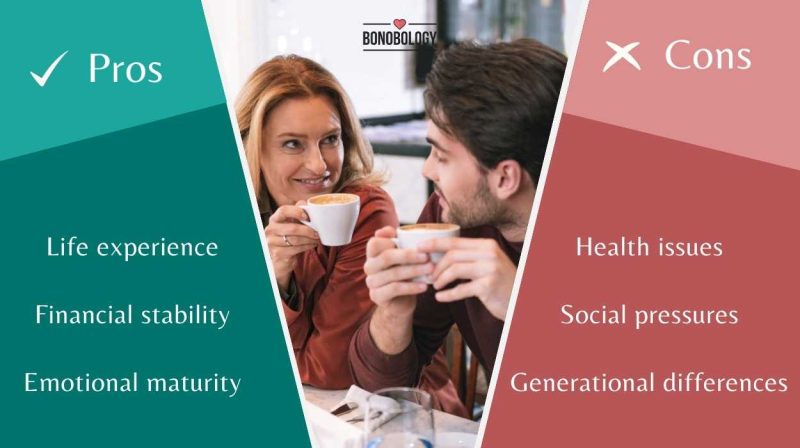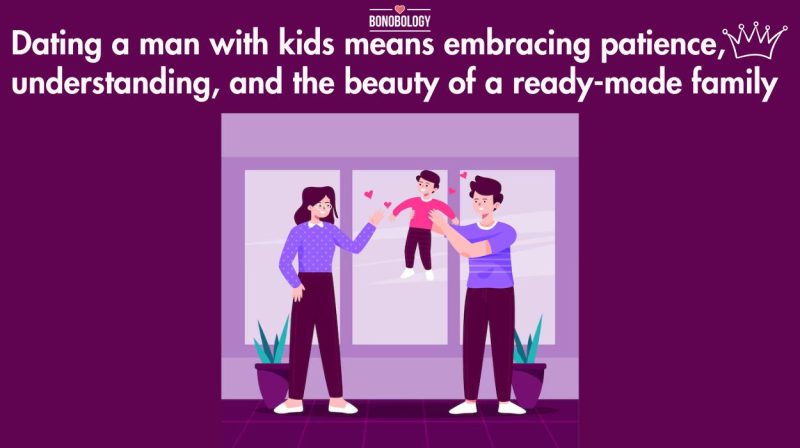The difference between a domestic partnership vs marriage in the U.S. should be an essential reading for those who are in a serious and long-term relationship. If you are confused about marrying someone, try living together under a legal agreement which allows two partners to live under the same roof without being married. Yes, that’s a new age relationship status that you can avail, and it helps you enjoy plenty of benefits. Domestic partnership is one of the closest alternatives to marriage which you can choose as it offers some of the same amenities that a marriage does, yet it is not entirely binding.
If you’re struggling to understand the difference between a marriage and domestic partnership, this is the right piece of reading for you. When asked on Reddit if domestic partnerships are a good idea, one user shared, “Setting up a domestic partnership before marriage can be rather beneficial to both parties. It is really a protective device for both of you prior to actually marrying.”
And while Reddit may be a holy grail for some answers, we should also let the experts weigh in. In order to properly understand what this kind of arrangement entails, advocate Siddhartha Mishra (BA, LLB), a lawyer practicing at the Supreme Court of India, is here to help break it down for us. Without further ado, let’s get right into it.
What Does Domestic Partnership Mean?
Table of Contents
According to California law, domestic partnership/relationship is defined as “two adults who have chosen to share one another’s lives in an intimate and committed relationship of mutual caring.” This law was mainly established during the early 1980s for same-sex couples due to lack of marriage equality. Here’s the criteria for a domestic partnership:
- Partners should be above the age of 18 and should willingly agree to enter a domestic relationship
- The couple should be committed and reside together
- They shouldn’t be married legally or religiously
- They can have children together
- They shouldn’t be married to anyone else
- They shouldn’t have any other domestic partner
- They must share responsibilities for living expenses
- Domestic partners cannot be related by blood
Is domestic partnership the same as a common law marriage? Not really. But the couple can enjoy some benefits that a married couple does. Siddhartha explains, “A domestic partner can be broadly defined as an unrelated and unmarried person who shares common living quarters with an employee and lives in a committed, intimate relationship that is not legally defined as marriage by the state in which the partners reside. The partnership consists of two people of either the same or opposite gender.”
Many people, regardless of their sexual orientation, opt for domestic partnership now because it is quite similar to a marriage. Once you and your partner enter the relationship using the Domestic Partnership Agreement, you can outline the financial, property, health, and medical details of your relationship, and as domestic partners, you may even enjoy some legal benefits.
Diana, a 34-year-old scientist, shares why she chose domestic partnership over marriage, “It’s harder to ‘walk away’ from a marriage than a domestic partnership. Divorce is very expensive. If things don’t work out with your domestic partner, breaking up is as simple as filing a Notice of Termination with the Secretary of State. It is legally recognized but doesn’t completely bind you to another person.”
Related Reading: 3 Key Skills To Save Your Marriage & Stop Divorce
Similarities Between Domestic Partnership And Marriage
Siddhartha says, “Domestic partnership is not identical to marriage, but it provides some of the same benefits. Some states refer to the institution as a civil union. But the definition of a domestic partnership or civil union varies from one city or state to the next.”
To understand the pros and cons of marriage vs domestic partnership, we need to go over what each of these bring to the table. In some ways, domestic partnerships take the cake. In others, a marriage seems like a more logical relationship status to opt for. But before all that, we must understand the core foundation of what each of these relationships entail. What do they look and feel like?
1. You are recognized in the eyes of the law
“Is a girlfriend a domestic partner if she lives with me?” asked one of our readers. While a live-in relationship may seem like a marriage, you must think of a domestic partnership as a middle ground between a live-in situation and a marriage. There are quite a few legalities in a domestic partnership that keep you tethered to the other person, other than just splitting the bill for rent and groceries – which makes it inch closer to a marriage in definition.
Siddhartha suggests, “Live-in relations or unmarried cohabitation of a man with a woman has been the focus of many social as well as legal researchers in last two decades. It is slightly different from domestic partnership. Unlike marriage, in live-in relationships, couples are not married to each other but live together under the same roof that resembles a relation like
marriage. In other words, it is just easier to simplify it and call it cohabitation.”
2. Splitting up looks the same
While there are many legal rights that one can avail of in a domestic partnership, what stands out is that even a divorce may look similar to splitting up for domestic partners. We know, we know, you came here looking to understand which is an easier way to stay with your partner and not leave them. But hear us out and you might just thank us in the long run, as this can be an important consideration in your decision of choosing a spouse vs domestic partner.
In many states including California, anything that is earned during a marriage can be split 50–50 in the event of a divorce. Surprisingly, domestic partnership rights allow one the exact same thing, in the event of dissolution. So you might not walk away with only a broken heart.
Related Reading: 3 Key Skills To Save Your Marriage & Stop Divorce
3. You get health insurance coverage in both situations
When it comes to health insurance, as domestic partners, you are entitled to all the same things that a married couple can avail. While that too will vary across states, there are wider provisions for it which can allow a couple to claim health benefits. And their children will all get it too.
For example, the State of New Jersey says, “The intent of the Act is to treat domestic partners of covered persons as spouses for purposes of providing health insurance coverage. Accordingly, if a spouse’s natural, adoptive or stepchildren would be covered, the domestic partner’s children would similarly be covered.” That’s just a complicated way of the state telling you, have a happy family!
4. You can avail housing rights
If you want to choose domestic partnership over being legally married, go right ahead. Because when it comes to getting a house together, as domestic partners, whether same-sex couples or not — you can freely assert your status as a legally recognized couple and that should not put any kink in your efforts to get a place. The Domestic Partnership Law recognizes the diversity of family configurations, so you can live your lives in a home of your choice.
Understanding The Difference Between Domestic Partnership And Marriage
Let us now dive straight into the spouse vs domestic partner debate. Is domestic partnership the same as a common law marriage? Is a boyfriend a domestic partner?
Living together with your partner or boyfriend as roommates is a different dynamic and doesn’t always qualify as you two being domestic partners. Yes, you must be involved with your partner romantically in order to qualify for a domestic relationship. And you must live together in a permanent residence and share basic financial responsibilities like food and shelter. But that still may not be a legal relationship in the eyes of the law.
Between a domestic partnership vs marriage, the main drawback of the former is that not all states have made a domestic partnership legal. So even if you basically share everything from your toothbrush to having a shared bank account, the state may still not see you as full-fledged domestic partners. Even in today’s day and age, some domestic partnership rights are compromised. Some orthodox and queerphobic people don’t really take domestic relationships seriously. However, in the states that it is actually legal, here are some of the differences between a domestic partnership and a marriage:
1. Legal rights of children
It is important to know this one if you want to choose domestic partnership and are keen on having children. There are quite a few legal differences in a domestic partner vs spouse dynamic. The former isn’t considered a family by the law. The main difference is that a married couple receives a lot more protection by the law, whereas a domestic relationship is frowned upon by conservatives. So even though you may not have all the same rights as a married couple, there are a few that can protect your household. Here are some laws that are common in a domestic partner vs spouse situation:
- A domestic partner can pay for child support or any other similar support without being married
- If your domestic partner has a child, you can adopt them before getting married
- A child born to two partners in a domestic partnership is treated exactly like the children born to a married couple
2. Tax benefits for domestic partners
Taxes are exorbitantly high for married couples. In the domestic partnership vs marriage debate, the former takes the prize here with the avoidance of tax penalty that a married couple is supposed to pay.
Tim, a 29-year-old investment banker, says, “I chose to be in a domestic relationship because I wanted to live with my partner before getting hitched officially. We file our taxes separately and save money on the marriage tax.” It’s no joke, Tim is winning at this game. He gets his man AND they save up money to spoil each other!
3. Estate or property difference
Another domestic partnership vs marriage difference is this: if you’re planning to buy a house or an estate together (in a domestic partnership), you will have to go through a lot of difficulties as compared to a married couple. Only one person can apply for a mortgage. You will have to sign a cohabitation property agreement in order to protect yourself when the relationship begins to spell doom. But marital assets, on the other hand, are a breeze.
When you are married, your spouse’s properties will be automatically passed down to you and you don’t have to pay any taxes on those properties. Whereas in a domestic partnership, the properties will be passed down to you but you will have to pay taxes. Take it from the expert:
Siddhartha says, “Registered domestic partners and same-sex married couples can find themselves at a tax crossroads come filing time. The difference between federal and state recognition of same-sex marriage and domestic partnerships can create challenges that married heterosexual couples do not face. That’s because, as of 2014, not all states recognize marriages between same-sex couples. Domestic partners and same-sex spouses, therefore, can submit only state tax returns based on the rules of the state where they are domiciled. Also, even if domestic partners can file a joint state tax return, they can only file individual federal tax returns unless they are legally married.”
Related Reading: Is Marriage Worth It – What You Gain Vs What You Lose
4. The difference of financial benefits in domestic partnership vs marriage
This is one of the key differences between being domestic partners and being married, so read on carefully. Even though you do get some kind of potential spousal support in this arrangement, domestic partners don’t receive retirement or other social security benefits like a married couple does. When I asked my colleague, Mason, about his views on life partner vs marriage, he said to me, “The limitations of such retirement benefits is why many people choose marriage over a domestic relationship. They need to secure their future.
“Even insurance companies don’t treat this as a common law marriage. Married couples enjoy more benefits than an unmarried one. You can’t transfer your assets to them without paying hefty taxes.” Think of it this way. You are somewhat taken more seriously in the eyes of the state if you choose to marry someone, and that affects your finances and that may be better for a long-term relationship. Moreover, there are all kinds of other issues you can run into.
Siddhartha tells us, “Unlike married couples, domestic partners can’t legally claim each other as family. This means they may not be able to claim the same familial rights as married couples, including the ability to adopt. And because domestic partners aren’t recognized on a federal level, one partner can’t petition for their non-citizen partner to remain in the United States. Comparatively, a non-citizen who marries a U.S. citizen can file for permanent residence.”
So take into account these kind of financial benefits and retirement benefits of getting married before you settle in a domestic partnership. This is an important one to think about when assessing the pros and cons of marriage vs domestic partnership.
Related Reading: 12 Tips For Married Couples To Split Finances
Benefits Available In Domestic Partnerships
The idea of a domestic partnership was designed to give committed people a chance to live like married couples, and enjoy what may feel like being legally married. While there may be some reasons to ditch the idea and tie the knot, there are a few ways you can be domestic partners and enjoy the life you wanted to without any serious strings. There are many economic and non-economic legal benefits you can receive in a domestic relationship, along with the following domestic partnership rights:
- Avoiding married tax penalty: A marriage penalty is when a household’s overall tax bill increases due to a couple marrying and filing taxes jointly. This tax doesn’t apply for domestic partners
- Health and dental benefits: Your health and Senegal benefits will be covered if you have a domestic partner of any gender
- Legal rights to children: A child born to parents in a domestic partnership is treated like children born to a married couple so it gives the couple essentially the same rights as if they were married. This way, you avail the benefits of not getting married and can still create a family
- The right to adopt: If the child was born to a different partner, you have the right to legally adopt your domestic partner’s child making it one of the benefits available in domestic partnerships
- Health benefits in a domestic partnership: You have the right to take up to five consecutive work days of paid bereavement leave of your partner, child, step-child, parent, or sibling
- Visitation rights in healthcare facilities: If your partner is at the hospital, you get all the visitation rights to go see them and are treated just like family. No more waiting rooms and you can enjoy potential spousal support
And to top it off, there are some inheritance rights that you can also enjoy. If one of the partners dies without a will, the survivng partner can inherit the property. Siddhartha says, “Domestic partners may not automatically inherit each other’s assets upon death. A married person can generally claim the estate of their partner without incurring any taxes. Domestic partners may require a will to inherit their counterpart’s estate, and they’ll still be subject to any taxes that apply.”
In the domestic partnership vs marriage conundrum, we may have to conclude that marriage is a sweeter deal here because you get far more benefits as a couple, from health insurance perks to buying a property together. While you don’t have to pay the marriage tax penalty in a domestic partnership, a marriage does offer married couples other benefits.

Should I Choose Domestic Partnership Or Marriage?
The rest is up to you. You can choose domestic partner vs marriage based on your perspective, preference, and religious views. Most people who are conservative and religious don’t choose domestic partnership, and prefer to change their relationship status to married. For such people, tying the knot is a far better option as it offers significant benefits and protections irrespective of where you reside. Marriages are recognized in all the states in the U.S. However, some states do not allow or recognize domestic partnerships.
Thinking about what to do next? What should you choose in the domestic partnership vs marriage confusion? If you’re leaning toward domestic partnership, here’s a quick recap of reasons that you should go for it. Choose domestic partnership:
- If you are concerned about the marriage tax penalty
- If you wish to escape the hassles of a divorce in the event of a separation
- If you’ve been married before and had a traumatic experience
- If you are concerned about qualifying for government benefits
- If either of you feels that marriage is an overly religious ceremony
- If you disagree with the idea of marriage and think of it as a historically patriarchal institution
Key Pointers
- Out of all legal benefits of a domestic partnership, the main one is that there is no marriage tax penalty
- You can legally adopt your domestic partner’s children
- Domestic partnership has less benefits than a common law marriage
- However, one can enjoy health benefits such as visitation rights in hospitals and health insurance coverage, if not all kinds of retirement benefits
Domestic partnership isn’t the same as simply living together with your partner; it involves a host of other things. You do need to check if you are eligible and qualified for a domestic relationship and you will also need to fill out some paperwork from the Secretary of State. And that can be a lengthy process. Once your application is notarized, you will have to pay the applicable fee and submit your form. The state will get back to you when they officialize your partnership. And there you have it! You are now domestic partners in the eyes of the law.
This article was updated in July 2023.
FAQs
A boyfriend can become your domestic partner only when you legally submit the forms. You need to share a common residence. The partner needs to shoulder the responsibilities of the house in order to qualify as a domestic partner.
Yes, domestic partners can get married whenever they want. Domestic partnership and marriage have different rights under the law. If you want to move from domestic partnership to marriage, then you can do so by registering for marriage legally.
Even though domestic partnership was established for same-gender couples, opposite-gender couples can also register to be in such relationships.
How To Tell Someone You Have Feelings For Them Without Ruining What You Have
9 Step Checklist To Consider Before Giving Second Chance In Relationships
Your contribution does not constitute a charitable donation. It will allow Bonobology to continue bringing you new and up-to-date information in our pursuit of helping anyone in the world to learn how to do anything.























Featured
125 пикантных вопросов, которые стоит задать своему парню
How To Start Dating: Tips For Beginners & Those Starting Again
25 Bedtime Stories For Girlfriend
From Self-Awareness To Compatibility: Digital Twins For Modern Relationships
Situationship Vs Relationship: Can One Lead To The Other?
How To Get A Guy To Like You: 20 Simple Techniques, No Mind Games
Situationship Vs Friends With Benefits: Similarities And Differences
The Significant Difference Between Love You And I Love You
125 Spicy Questions To Ask Your Boyfriend
125 Deep Questions To Ask Your Boyfriend To Truly Understand Him
Balancing Love And Learning: How Online Degrees Can Strengthen Relationships
What Is A Power Couple? 15 Signs You And Your Partner Are One
What Is The Role Of A Husband In A Modern Relationship?
Marrying An Older Woman: Pros And Cons, And How To Make It Work
Everything You Need To Know About Transactional Relationships
Premarital Counseling – 12 Reasons You Should Opt For It
Living Apart Together: Decoding The Latest Trend Said To Save Relationships
Marrying For Money: Is It The Right Choice For You And How To Make It Work?
21 Things To Know About Dating A Man With Kids
Surprising Psychological Benefits Of Women Proposing To Men And 19 Ways To Do It Right